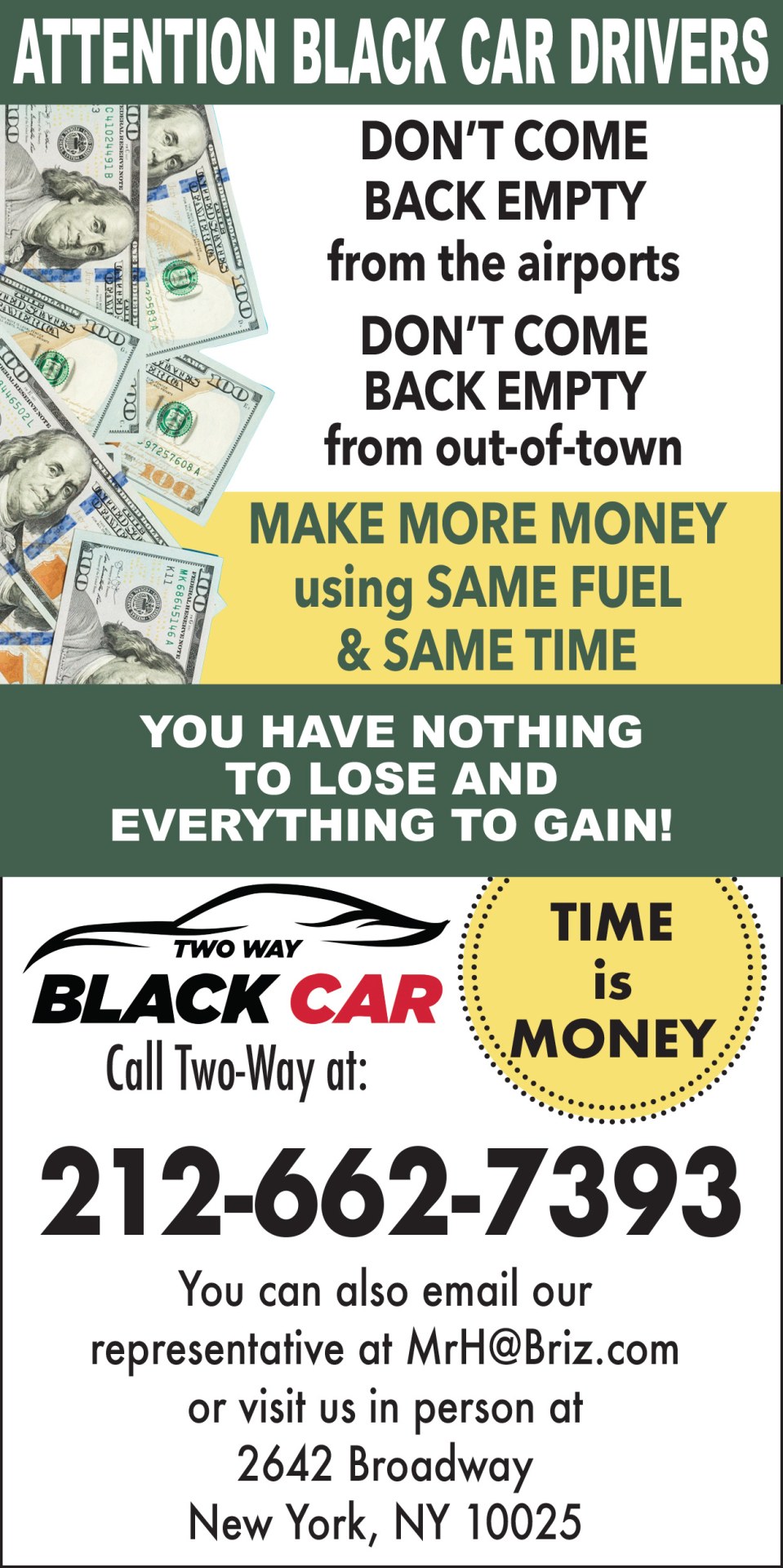In October, the NYC Taxi & Limousine Commission (TLC) held its first hearing led by TLC Chair Aloysee Heredia Jarmoszuk. Commissioners introduced two proposed sets of rules: One package addressed “Adjudication and Summary Suspensions”; the second was a “Clean-Up Package,” meant to ensure enforcement is done in accordance with changes recently implemented by City Council.
The following is a summary of the proposed TLC rule changes:
Summary Suspension Rules. This proposed rule change would update procedures related to notices and hearings for drivers charged with a felony or serious misdemeanor. It would provide guidance to the Hearing Officer and Chairperson regarding public safety, including whether a license suspension should be extended. Drivers could have a license suspension shortened if their violation is not deemed a direct and substantial threat to public health or safety.
Several drivers expressed concerns that the proposal doesn’t go far enough to protect them during these difficult times. They asked the TLC to be more specific in defining when a charge should trigger a license suspension and asked that suspensions only be used in the event of a conviction. The Commissioners did not vote on these proposed rules at the hearing, but Chair Jarmoszuk agreed to consider all testimony before making a final decision.
TLC Clean Up Rules. The TLC proposed the following “clean up” rule amendments:
- Update language relating to passengers with disabilities, wheelchair-accessible service, and service animals.
- Remove references to a Dispatch Service Provider license, which was previously repealed from TLC’s rules.
- Allow FHV bases with franchise agreements under New York State law to pay drivers and pass along summonses in accordance with those agreements.
Diana Clemente, President of the Black Car Assistance Corporation, asked the TLC to consider language protecting cooperative agreements. The TLC showed an interest in learning more and Chair Jarmoszuk requested additional feedback.
“In the traditional black car industry, many companies are set up as cooperatives,” explained Clemente, who is also President/Owner of Big Apple Car and VIP Gold, in her testimony. “While most are franchises, the absence of cooperatives in this language would exclude many traditional bases from continuing to operate in the manner outlined in their cooperative agreements. It would also create an unfair playing field within the traditional black car industry if you do not treat franchise models the same as cooperative models.
“With regard to paying earnings within one week of a trip’s completion, this would create an issue with traditional bases who work with corporate accounts,” Clemente added. “Corporate accounts are established with various payment schedules… with payment often not made for 120 days or more, while bases ensure that drivers are paid in a timely manner.
“As far as passing along summonses to drivers, the exclusion of cooperatives would also put a halt to this practice,” noted Clemente. “In a true cooperative, the shareholders are the drivers, and they have agreed to the practice… as part of the agreements they signed. Since High Volume For-Hire Vehicle (HVFHV) companies are in-fact organized as cooperatives, we understand why this language was excluded. Simply lumping in cooperatives with a broad stroke would ultimately also apply to HVFHVs. While a traditional black car base and HVFHV may both be organized as cooperatives, they operate with very different business models. We are proposing legislative language that would ensure that traditional or legacy cooperatives are treated the same as franchises.”
Accessible medallions. The TLC also sought to change rules relating to accessible medallions. The current rule prevents owners of Accessible Taxi Medallions from receiving grants funded by the Taxicab Improvement Fund. The TLC said it also wants to make the following changes:
- Require drivers to take courses from TLC-authorized education providers.
- Remove the 10-day deadline for requesting a summary suspension hearing, allowing for a hearing at any time during the suspension.
- Reflect the recent TLC Education program name changes, including a requirement that a driver convicted of using an electronic communication device while driving be mandated to take a Distracted Driver Portable Electronic Device Course within 60 days.
The TLC seeks to significantly reduce FHV illegal street hail penalties:
- The fine for a First Violation would be reduced from $500 to $200-$350.
- The fine for a Second Violation in 24 months would change from $1,500 to $350-$500 – plus up to a 30-day suspension.
The following seeks to change penalties relating to the “Hail Exclusionary Zone”:
- The fine for a First Violation would be reduced from $2,000 to $500.
- The fine for a Second Violation in two years would drop from $4,000 to $750.
- A third violation in 120 months would be changed from $10,000, plus license revocation to simply a license revocation.
TLC Commissioners did not vote on the “clean up” rules at the meeting, and a date had not yet been scheduled for the vote, as of Oct. 28.
Sources: Windels Marx, Black Car Assistance Corp.






